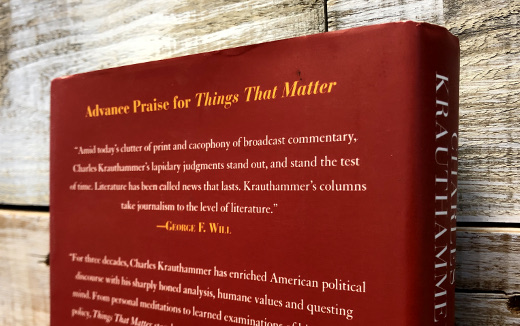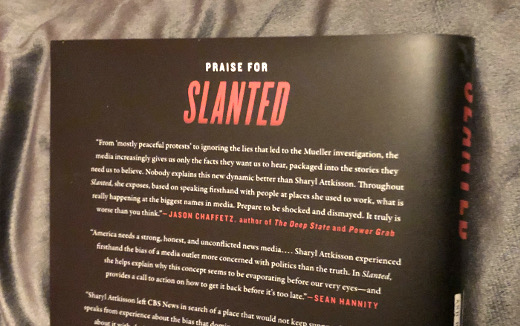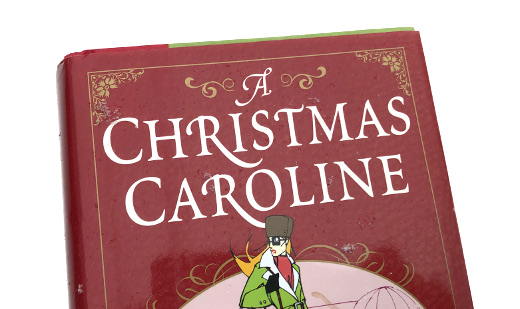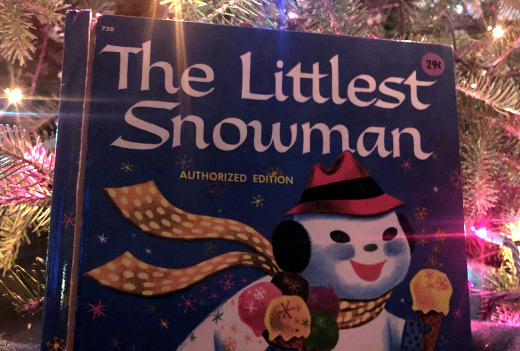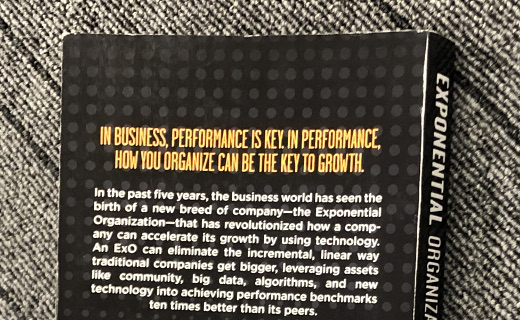My Takeaways From Things That Matter
A dear friend once suggested I write a book consisting of blog posts I have written here at The Hot Iron. My response to her, through a dismissively scrunched face, was “who would want to read past things I wrote?” After reading Things That Matter by Charles Krauthammer, I am rethinking that knee-jerk reaction.
Krauthammer was an award-winning columnist, following years as a policy advisor following years as a doctor. When I saw him occasionally as an analyst on various cable news talk shows I had no idea of any of this. As I enjoyed his commentary on TV, I presumed I would enjoy this book, not to mention taking away a few things from it. In this case my reaction was spot-on.
A good look back on history thru a unique lens – In addition to his journey from medicine to writing, Krauthammer was an American who lived in Canada in his youth. His writing style was smart yet educating with a wry sense of humor, and it was clear to anyone reading it of his conservative stance. Even if you didn’t agree with him, he wrote in a way that you would still want to hear what he had to say. This combination of background and style made for the unique pieces curated in this book.
Peace in The Devil's Dictionary – In one article Krauthammer referred the definition of “peace” in The Devil’s Dictionary. I had never heard of the Devil’s Dictionary and wasn’t aware of this satirical book of definitions for common terms. In this case, peace is defined as, “in international affairs, a period of cheating between two periods of fighting.”
More writers should do this – Clearly this book has got me thinking of re-evaluating doing this myself, despite the antithesis of my notoriety as compared to Charles Krauthammer. As well there are many columnists out there who should also do this... and I am looking at you Heidi Stevens!
Things That Matter is not solely a political book, as it talks of life, culture, sports, chess and, yes, politics covering several decades of his columns. I enjoyed his thoughtful writing that presented a perspective of a time when I was much younger and didn’t fully know all going on in the world.
If you are interested in a historical look at world events from the time they occurred I highly recommend Things That Matter. I was given this book several years ago before Krauthammer died and I finally got to reading it now. I passed this book along to my wife who also enjoyed him on TV and my guess is she’ll enjoy his writings as well. Perhaps you can get the book from her when she is done with it, or click any link here to buy a copy of your own – if you do I will earn a few pennies from your purchase.
This is from The Hot Iron, a journal on business and technology by Mike Maddaloni.
Did you enjoy this? Subscribe to The Hot Iron by RSS/XML feed or Read by Email
Book Take-Aways • (0) Comments • PermalinkMy Takeaways From Slanted By Sharyl Attkisson
As Frida said best, I know there’s something going on. Personally I want to know what that is – the who, what, where, when, why and how and all sides of a story. If there’s an opinion about it to be made, it will be created in my own mind.
Call me old fashioned, but that’s the way the news was like when I grew up; I liked it then, and I still do now. However today and for many preceding years, the news has been nothing like how it was. Stocked with thin, incomplete coverage and opinion coming from talking heads in boxes on a screen – that’s not news to me.
As the saying goes, misery loves company, and after reading Slanted by Sharyl Attkisson, I realized I was in very good company. Attkisson is an award-winning investigative journalist and has worked for CNN and CBS in the past and is the host of the weekly news program Full Measure. Slanted chronicles the devolution of mainstream media news from the major TV networks and cable channels. Where their news reporting was once revered, it has become a shell of what it was, and biased or slanted towards a certain side or stakeholder in a news story.
With a strong desire to go back to the days when news was news, I certainly had takeaways from reading Slanted.
It’s not just me – Slanted presented thoughtful analysis of what I observe when I do watch or read the news. Often I am left head-shaking when I consume a news story, wondering why I feel like what I just read or saw was not the whole story, or if a perceived bias was correct or not.
Let’s all play the Substitution Game! – Attkisson uses a technique called the Substitution Game, where she will take a story that is biased towards one party – political or not – and substitute one side’s name for the other, typically in a story against one of those parties. Almost instantly a lightbulb will go off over my head realizing how absurd or incredulous a story appears when that’s done.
Who said there’s no money in objective journalism? – I am willing to pay for it, and am not willing to pay for bad, biased journalism, let alone consume it. This is part of the reason why we haven’t had cable TV in my household for years.
As much as I enjoyed Slanted, it’s unfortunate such a book had to be written. It provides great context and insights from others who work in news media. I enjoyed the interview Attkisson had with Lou Waters, with whom she co-anchored on CNN back in the 1990’s. Where Waters is named, many of the other interview subjects and not, and my guess was to protect their identities as they likely still work in mainstream news. Had more of them come forward that would have provided even more credibility to the state of news, but I can understand why.
If you are curious as to what may be going on behind the story in news coverage, I highly recommend reading Slanted. I purchased my copy, actually pre-ordering it when it was announced back last April. I have in the past purchased and wrote takeaways on Attkisson’s other books – Stonewalled and The Smear. As I give away all books I read, this one is going to a colleague whom I had a recent conversation with on the news and feels similarly to me on today’s reporting. You can always get your own copy with one of the links in this post, and note that if you do click and buy, I earn a few cents.
This is from The Hot Iron, a journal on business and technology by Mike Maddaloni.
Did you enjoy this? Subscribe to The Hot Iron by RSS/XML feed or Read by Email
Book Take-Aways • (0) Comments • PermalinkMy Takeaways From A Christmas Caroline
‘Tis the season to bring out the best in people, as we close out the year with gift giving and gratitude to all who were part of our lives the previous dozen months. ‘Tis also the season for the exact opposite of that, which is the tale told in the book A Christmas Caroline by Kyle Smith.
This story is a modern take on the holiday classic A Christmas Carol. Here, our protagonist is Caroline, an editor for a fashion magazine in New York City who works hard at being beautiful and making sure everyone knows this. As you might guess, she isn’t exactly a nice person. After being fired after nearly burning down her office after insulting her new boss, Caroline is taken through the traditional Christmases past, present and future and in the end everything works out and then some.
Where my takeaways from fiction are not usually the same as their non-counterpart, I have a few after reading this story.
And then some – Caroline’s journey over Christmas is not just a modernized version of Charles Dickens’ tale, as it has some unique twists and contemporary story lines that may resonate more with readers today. Don’t get me wrong, I love the “original” and have read it and seen it over the years on stage and screen. However accounting in the 1800’s doesn’t quite grab someone as much as 2000’s work and life in New York City.
Holiday struggles – From the “first” story where Mary and Joseph couldn’t find a room in an inn and had to settle for a barn, to Caroline’s realizing there’s more to being a member of society than herself, what’s a Christmas story without struggle? If there is such a story, my guess is I wouldn’t want to read it.
After rereading The Littlest Snowman I looked to find another Christmas story that would be better suited to an older reader, and found A Christmas Caroline. I was drawn to it because of its story, and that its author Kyle Smith graduated from my high school a year before me. Though we were both on our school’s team for a local high school TV quiz show, I doubt he remembers me. Smith has written another book that inspired a TV show and is a columnist for the New York Post and National Review. Go Spartans!
Though the holidays are drawing to a close, I recommend picking up a copy of A Christmas Caroline. It has sharp wit on just about every page and was a nice diversion from holiday shopping. As for what I am going to do with my copy, it’s on its way to my cousin, who I know will enjoy it especially the references to the Big Apple.
Yes, click on this or any link in this post and I earn a few cents if you buy the book.
This is from The Hot Iron, a journal on business and technology by Mike Maddaloni.
Did you enjoy this? Subscribe to The Hot Iron by RSS/XML feed or Read by Email
Book Take-Aways • (0) Comments • PermalinkMy Takeaways From Rereading The Littlest Snowman
As it is a certain first of December morning, it’s time for my annual rereading of my all-time favorite Christmastime book from childhood, The Littlest Snowman.
In the spirit of the season, and as a diversion from the usual multi-hundred paged tomes that I have been reading throughout the year, the nearly two-dozen pages of this classic is a welcome treat. As I gently paged through this Wonder Book I couldn’t help thinking of what I do with every other book I read – writing my takeaways from them. In the spirit of The Hot Iron as well, here’s my takeaways from this winter tale.
Selflessness at its core – What is a holiday book without a feel-good story? This one is about the annual tradition on a town where a small boy, who is the only one who knows how, makes the Littlest Snowman along with his neighbor and several anthropomorphic animals. The Littlest Snowman then lights the town’s Christmas tree, followed by the local weatherman declaring it will be a white Christmas. Only that the forecast doesn’t pan out, and it’s up to the Littlest Snowman to save the day by sacrificing himself. Fortunately the story has a happy ending with his remaking.
Why am I the only one I know who knows about this book? – When I tell people about The Littlest Snowman, which was originally published in the 1950’s, nobody has ever heard of it. I have always wondered why, and even did Internet searches on it to no avail. Once again I am either in the minority, or am once again leading a niche.
Why wasn’t this made into a TV special? – With all of the TV specials out there and new (but not necessarily better) ones being created every year, why hasn’t anyone made this book into an animated feature? Or even a live action special? Perhaps it’s because nobody knows about it, or who knows why. As I am not in the position to do so, anyone reading this can feel free to do so.
The process of rereading The Littlest Snowman is a delicate one. As the copy of it I read as a child is long gone, I was able to find a used copy online several years ago. It’s an original print of the story, and is a little fragile. Each year I search for other copies online and find them, but I have decided to make this version the replacement of the one from my youth. You can find your own copy of The Littlest Snowman on Amazon using this affiliate link. That way we can both benefit from making this tale part of your holiday season.
This is from The Hot Iron, a journal on business and technology by Mike Maddaloni.
Did you enjoy this? Subscribe to The Hot Iron by RSS/XML feed or Read by Email
Book Take-Aways • (0) Comments • PermalinkMy Takeaways From Exponential Organizations
Despite all odds and even with all going on in the world, some business just simply flourish. They make headlines and flaunt their success. They do this while driving down the road of fortune, fame and growth that was paved by those who didn’t do so well. But why is this? Is there a “secret formula” some these companies follow that others don’t?
The authors of Exponential Organizations believe there is a pattern to this; companies that leverage the latest in technology, big data, algorithms and the broader community will not only find success, but exponential growth as well. They call these firms ExOs, short for exponential organizations. The approach they modeled in this book back in 2014 has led to a global organization, OpenExO, that consults and trains people on ExOs. As well there are startup consulting firms like BostonExO, which is how I learned about this book, as my good friend Eric Patel started such a firm this past summer.
Intrigued by this, I bought a copy of Exponential Organizations to try to understand better what this was about, and from it I have several takeaways.
Gotta Have Attitude – If you think you can be successful, it will help you more than if you are unsure about it. Upfront I saw this with what they call a Massive Transformative Purpose, or MTP. Typically, someone will say their firm has a vision or mission, but if you want to consider yourself an ExO, you call it an MTP. Where on the surface an MTP and vision statement may look the same, the key to the former in the word transformative, which implied you are making a large, dare I say exponential, impact by what your business does.
Supertankers and Tugboats – The book covers all of the elements of what make up an ExO. In laying these out, it discusses how they can be used for creating a new firm, as well as applying them to an existing firm who likely doesn’t operate anything like a smaller, more nimble entity. A larger firm will setup a smaller firm or simply acquire one, often times integrating the smaller firm in the larger, and often times losing a lot of why they made the acquisition to begin with. The analogy I read of tugboats guiding supertankers really resonated with me – these smaller firms don’t have to be engulfed, and they can guide the larger firm and likely will be vital in their success.
Disrupt Thyself – Another idea I took from the book was to setup your own ExO to disrupt yourself. The thinking is here where you give the start-up money, your data and your intellectual property, and leave them alone. If someone is going to disrupt you, it may as well be yourself, and that way you can use what is created to save your business.
My Thoughts on Version 2 of the Book
As Exponential Organizations came out 6 years ago, a lot has changed in business and the world, and as a result some of the content – especially examples of businesses – is dated. The authors have thus embarked on an endeavor to update the book. In case anyone is interested, I will share my thoughts for a version 2 of the book.
Separate Theory from Examples – Woven in with the principles of what an ExO is are examples of entities that the authors consider either follow well the model of what an ExO are, or don’t. As these are tightly coupled, it can be distracting when a business is mentioned as a good example, but is no longer in existence today, as it was acquired or changed since the initial publication. This, however, is not just a challenge for this book but many I have read over the years, as businesses always come and go. Separating theory from examples will go a long way to keeping the main ideas relevant, even though the examples down the road may not be.
More Relatable Examples – Many of the examples of what an ExO were entities that seemed out of reach to me – Amazon, Zappos, Tesla, Google. Many books cite these businesses as pinnacle examples, and certainly they are. But for the average person, these businesses almost seem irrelevant; if you don’t become the next Google, are you a failure? There are certainly businesses that are smaller in scale, scope, yet truly transformative and exponential, and there should be a focus on them. Companies founded by people who were directly inspired by reading Exponential Organizations would be the ultimate examples.
An Online “Addendum” Connected by QR Code, Subscription – Almost every book has an accompanying Web site these days, and tucked away on them is an “errata” or section on changes to the book since the print copy went into the wild. The previously mentioned thoughts for version 2 should also leverage the Web or an app for this, and could tie them together with a QR code in each section of the book or an email newsletter subscription or RSS feed to notify readers of the book as to these types of changes. Registered users could even get an overall updated copy of the book over time when the authors decide to fold these changes into the published version.
Passing Along The Learning
As I do with all books I read, I pass it along once I have finished it and have written my takeaways here at The Hot Iron. In this case I am sending it to a work colleague. There are changes going on in our organization, and I want to share these ideas as they may be relevant to what we are doing.
I recommend Exponential Organizations to anyone starting a new business or working in an existing one. The ideas here can help you in evaluating how to move forward with projects and changes in your organization towards a transformative journey.
Editor’s Note: All links to the book are Amazon affiliate links, which means if you click on them and buy the book, then I make a few pennies.
This is from The Hot Iron, a journal on business and technology by Mike Maddaloni.
Did you enjoy this? Subscribe to The Hot Iron by RSS/XML feed or Read by Email
Book Take-Aways • (0) Comments • Permalink
